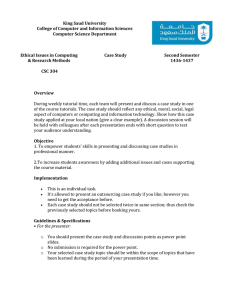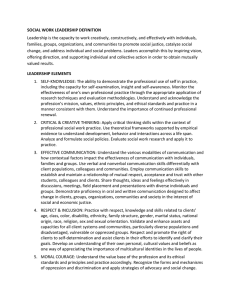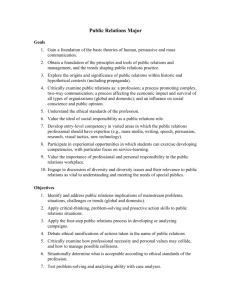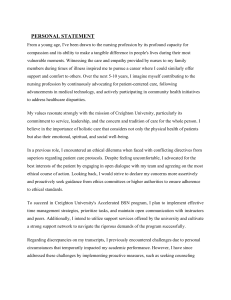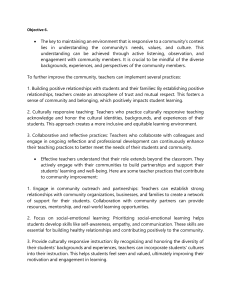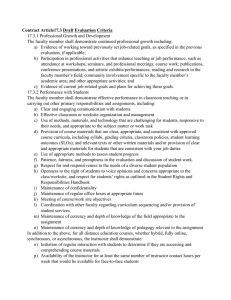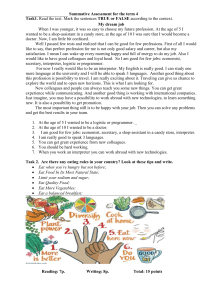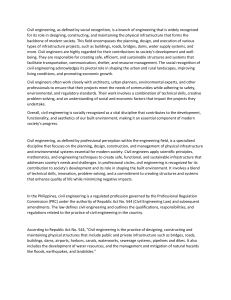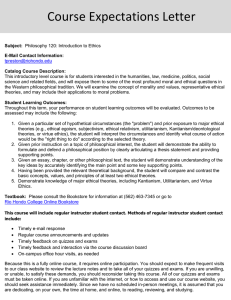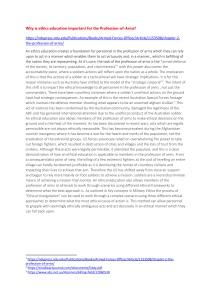Social Media and the Profession of Social Work
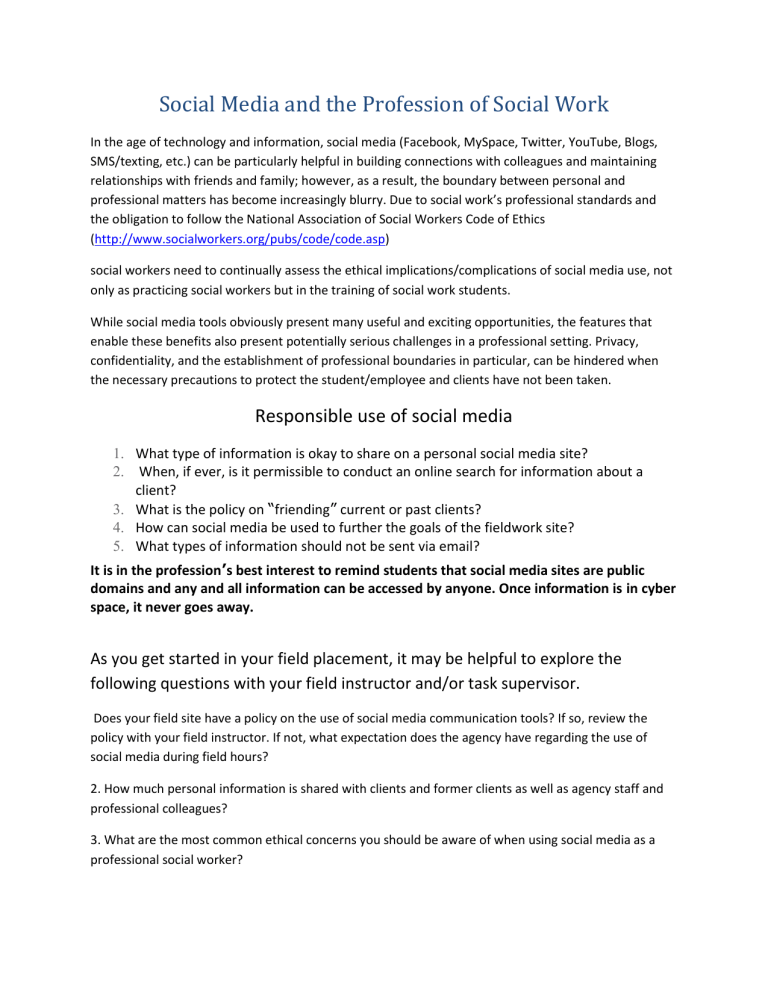
Social Media and the Profession of Social Work
In the age of technology and information, social media (Facebook, MySpace, Twitter, YouTube, Blogs,
SMS/texting, etc.) can be particularly helpful in building connections with colleagues and maintaining relationships with friends and family; however, as a result, the boundary between personal and professional matters has become increasingly blurry. Due to social work’s professional standards and the obligation to follow the National Association of Social Workers Code of Ethics
( http://www.socialworkers.org/pubs/code/code.asp
) social workers need to continually assess the ethical implications/complications of social media use, not only as practicing social workers but in the training of social work students.
While social media tools obviously present many useful and exciting opportunities, the features that enable these benefits also present potentially serious challenges in a professional setting. Privacy, confidentiality, and the establishment of professional boundaries in particular, can be hindered when the necessary precautions to protect the student/employee and clients have not been taken.
Responsible use of social media
1.
What type of information is okay to share on a personal social media site?
2.
When, if ever, is it permissible to conduct an online search for information about a client?
3.
What is the policy on “ friending ” current or past clients?
4.
How can social media be used to further the goals of the fieldwork site?
5.
What types of information should not be sent via email?
It is in the profession ’ s best interest to remind students that social media sites are public domains and any and all information can be accessed by anyone. Once information is in cyber space, it never goes away.
As you get started in your field placement, it may be helpful to explore the following questions with your field instructor and/or task supervisor.
Does your field site have a policy on the use of social media communication tools? If so, review the policy with your field instructor. If not, what expectation does the agency have regarding the use of social media during field hours?
2. How much personal information is shared with clients and former clients as well as agency staff and professional colleagues?
3. What are the most common ethical concerns you should be aware of when using social media as a professional social worker?
